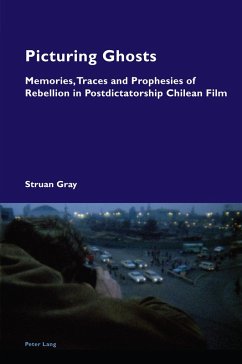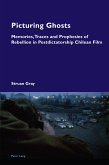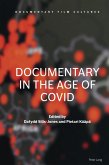How can the afterlives of anticapitalist and antidictatorship resistance enliven contemporary imaginaries of social justice? Where can the legacies of authoritarianism be spatially located and challenged? And what roles can film play in reckoning with these spectral inheritances?
Picturing Ghosts addresses these questions in relation to postdictatorship Chile, a country that has become a nodal point in global geopolitical narratives about the obsolescence of socialism, the birth of neoliberalism and «the end of history». Exploring how the Chilean «transition to democracy» has been narrated in film, the book focuses on stories of haunting and rebellion that unsettle hegemonic temporalities and frameworks of memory. Engaging with the idea of haunting as a trope, a conceptual metaphor and a structure of feeling, it considers different approaches to reckoning with the present past as an emancipatory presence - a multiplicity of unfinished projects and unanswered questions that the cultural imaginary of late capitalism hastens to smooth over.
Through a cartographic approach to analysis, this study looks beyond established landscapes of memorialisation in Chile, encountering rebellious subjects and stories in houses and haciendas, poblaciones, the presidential palace, the Atacama Desert, shopping malls, public schools and university campuses. In doing so, it contributes to an emerging field of research that problematises the dominant spatial and temporal imaginaries of «post-conflict» transitions, striving to construct more inclusive and transformative conceptions of truth, justice and emancipation.
Picturing Ghosts addresses these questions in relation to postdictatorship Chile, a country that has become a nodal point in global geopolitical narratives about the obsolescence of socialism, the birth of neoliberalism and «the end of history». Exploring how the Chilean «transition to democracy» has been narrated in film, the book focuses on stories of haunting and rebellion that unsettle hegemonic temporalities and frameworks of memory. Engaging with the idea of haunting as a trope, a conceptual metaphor and a structure of feeling, it considers different approaches to reckoning with the present past as an emancipatory presence - a multiplicity of unfinished projects and unanswered questions that the cultural imaginary of late capitalism hastens to smooth over.
Through a cartographic approach to analysis, this study looks beyond established landscapes of memorialisation in Chile, encountering rebellious subjects and stories in houses and haciendas, poblaciones, the presidential palace, the Atacama Desert, shopping malls, public schools and university campuses. In doing so, it contributes to an emerging field of research that problematises the dominant spatial and temporal imaginaries of «post-conflict» transitions, striving to construct more inclusive and transformative conceptions of truth, justice and emancipation.
Dieser Download kann aus rechtlichen Gründen nur mit Rechnungsadresse in A, D ausgeliefert werden.









